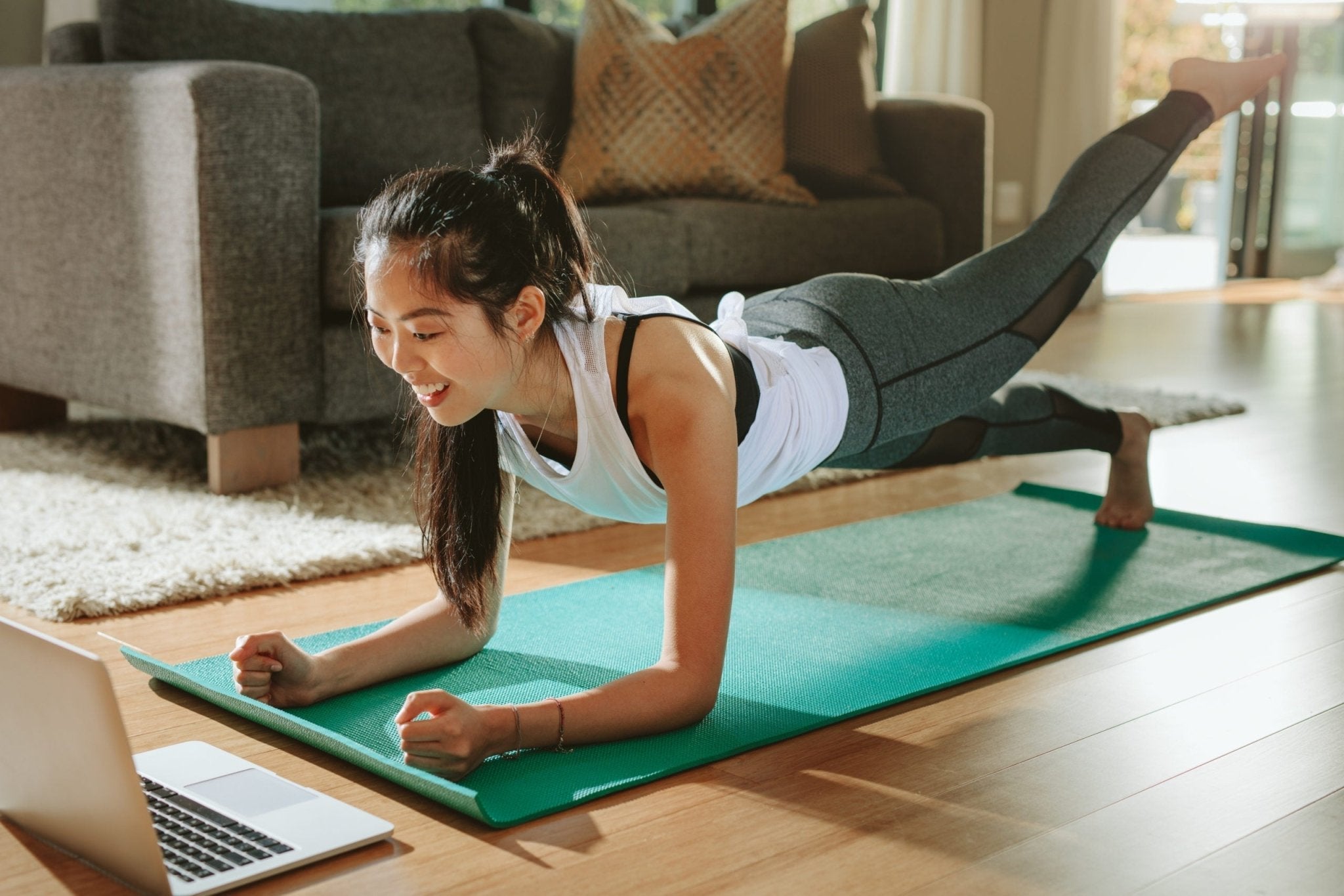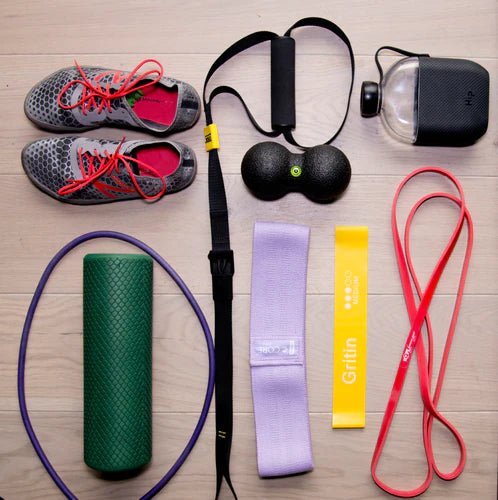How to boost your immune system and keep it fighting fit, by Ayesha Muttucumaru
Does your immune system appear to be depleted? Do you seem to catch every sniffle, sore throat and sickness bug going? Post-Covid, there appear to be more illnesses around than ever before, so in order to stay well all year round, a multi-pronged approach is needed, from exercise to de-stressing techniques and gut health boosting foods.
We asked the experts for their top advice
1. Keep moving
Especially in the winter months, it can be tempting to just sit on the sofa and binge watch box sets. Don’t get us wrong, sometimes that’s just what’s needed, however, your body’s ability to fight off illness might suffer as a result. Making movement a daily priority plays a vital role in keeping our defenses strong. What’s more, it also encourages us to get into a routine which experts agree can help boost mental health.
Regularity is key rather than intensity – even walking can be beneficial, says immunologist and author of Immunity: The Science of Staying Well by Dr Jenna Macciochi. This is because lymph (the fluid that contains white blood cells) relies on the movement of muscles to move around the body. White blood cells have an array of tasks, including a ‘surveillance function’ to detect anything harmful and help the body to repair itself post illness.
Doing exercises that maintain muscle mass is also important as it helps support the thymus gland, the organ responsible for releasing an important type of lymphocyte called T-cells. However, because muscle mass starts to decrease as early as in our 20s, immunity declines also. “Keeping muscles moving and looking after our muscle mass keeps the gland young,” says Dr Macciochi. So, as well as cardio, look to incorporate some kind of resistance training into your weekly regime too.
If you’re unable to get to the gym, there’s no excuse as there's now such an impressive selection of home workouts on YouTube to choose from – check out Popsugar Fitness for boxing, The Body Coach TV for HIIT, Yoga with Adriene for a workout for body and mind and The Fitness Marshall whose dance workouts are guaranteed to put a smile on your face.

2. Avoid overtraining
Be wary of over-exercising though, Dr Macciochi warns. Combined with a full-on workload, commuting and the demands of a busy job, it can lead to an increase in levels of the stress hormone, cortisol, which has an immunosuppressant effect. Overdoing HIIT workouts without allowing for adequate recovery is a situation that Dr Macciochi often sees with her patients.
The optimal amount of recovery time differs from person to person and depends on a number of factors such as age, sleep, fitness levels and how stressed you are generally. So it’s important to tune into your body, start slow if you’re new or returning to exercise and seek to vary your modes of daily movement – a mixture of high and low intensity exercise that balances regularity with recovery is the ideal scenario.
3. Protect against chronic stress
There’s a reason for why when we’re burning the candle at both ends and we’re more susceptible to catching an infection. It comes back to how stress elevates levels of cortisol which, if constantly raised, can cause the body to be in a state of chronic stress and lead to constant suppression of the immune system.
In addition to exercise, incorporating a meditation practice into your day and trying breathing techniques are effective ways of better managing stress levels in our experience. Download the Calm app for a range of guided meditations, relaxation playlists and nature sounds to help bring a moment of peace into your day.
That being said though, a cultural change is needed if we’re to see a long-term difference to stress levels on a global scale. “We need to cultivate work environments where we make it okay not to be working 100% of the time,” Dr. Macciochi says. “Work days are no longer 9 to 5 – emails are easier than ever to access on our phones. Work can be 24/7 if we let it.” Trying to set strict boundaries between work and life is a good starting point and recalibrating your phone settings to reduce the inundation of news and coronavirus updates you’re receiving. If that means switching off your WIFI, muting your email and Instagram alerts or leaving your phone in another room, find what works for you to make your relationship with tech a healthier one.
4. Prioritize sleep
We’re all aware of the short-term effects of a bad night’s sleep – a lack of focus, tiredness, being more irritable than usual. However long-term, it could have far-reaching effects on our mental and physical health. In fact, Dr. Macciochi tells us that a lack of sleep can lower our immune system by a staggering 60%. “Sleep is fortifying for the immune system which has evolved with us being active in the daytime and being inactive at night,” she says. “At night, sleep supports the immune system in fighting infection, and in helping the body heal and repair.”
The NHS in the UK states that most adults need between six and nine hours sleep per night however, as well as focussing on the quantity of sleep that you’re having, it’s also important to focus on the quality. Dr. Macciochi explains that while there hasn’t been a lot of research in this area, what we do know is that we need both REM and non-REM sleep. REM sleep is the deeper type of sleep, believed to benefit memory, mood and learning.
In order to boost your REM sleep, Dr. Macciochi advises implementing a daily wind down routine that supports the body’s production of the sleep hormone, melatonin, and reduces levels of the stress hormone, cortisol. “If you’re watching too many things that are stimulating or exposing yourself to blue light too close to when you’re going to go to sleep, these will keep you awake and suppress melatonin levels. Strenuous exercise in the evening can inhibit this too.”

5. Go gently with jet lag
If you travel frequently then it's worth knowing that jet lag can also lower our immune system. This is because, as Dr. Macciochi points out, our biology wasn’t designed to travel through multiple time zones in such a short space of time.
Jet lag can wreak havoc with our circadian rhythm (the internal clock that controls our sleep/wake cycle), affecting the quality of our sleep and making us more prone to infection. Unfortunately, there’s no fast fix for recalibrating it. “You cannot reset your circadian rhythm but only reset it gradually, estimated to be one hour per day based on exposure to light,” explains Dr. Macciochi. She advises easing yourself into your new time zone gradually and not depriving yourself of sleep if you need it, getting lots of natural light exposure during the daytime and limiting coffee close to your new bedtime. “Blue light blocking glasses may help with falling asleep at night,” she adds.
6. Get Fresh
Aim for between five and eight servings of fresh food every day. Diversity is key.
Registered nutritionist Daniel O’Shaughnessy highlights the following as being particularly health-boosting:
- Garlic, which contains a sulphur-containing compound called allicin that helps support the immune system.
- Red bell peppers and citrus fruits due to their vitamin C content. This helps increase numbers of infection-fighting white blood cells.
- Turmeric as its active ingredient is curcumin, a well-researched immune-supportive food.
- Ginger has an anti-inflammatory effect due to compounds called gingerols, shogaols and paradols.
- Green tea as it contains EGCG, a powerful antioxidant.
- Shellfish which is rich in zinc to support immune cells.
- Shiitake mushrooms due to their beta glucan content which helps immune function.
Valuable food for thought, but be careful not to get obsessed with healthy eating. “Pleasure from food is also important – if you’re abroad and want to enjoy yourself and sample some of the local cuisine, do it,” says Dr. Macciochi.
7. Go with your gut
The microbiome in our gut is one of the biggest educators of our immune system. What most people don’t know though is that much of it is shaped in early life – factors such as where and when we were born, whether we were breastfed and what we were exposed to as a child play key roles. As a result of this, our microbiome is actually quite fixed. That being said though, Dr. Macciochi tells us that it can still be influenced to a degree by diet later on in life.
To help your gut flora flourish, she recommends eating a diverse diet rich in plant-focussed and fibre-rich foods in order to cultivate a diverse microbiome. ‘Good’ microbes convert fiber into health-promoting substances, which in turn help reduce infection and inflammation. She advises eating lots of fruit (for example, berries), vegetables, beans, legumes, herbs and spices. However, when adding these types of foods to your diet, take it slowly and don’t suddenly incorporate large quantities at once. If you’re not used it, it might prove a little too much for the body to handle.
Is it worth taking a probiotic supplement too? In Dr. Macciochi’s opinion, it could help those with digestive complaints and for avoiding ‘traveler’s diarrhea’ when an abundance of different foods (and the different strains of bacteria that can be found on them) can disturb the status quo of your microbiome. However otherwise, it’s best to go with a food first approach. “As we don’t know what strains of bacteria people have in their guts, we can’t be sure of which probiotics to recommend,” she says. “Rather than focussing on specific strains, it’s more important to consider how the different bacteria work together collectively.” This is best supported through eating a range of different foods.

8. Be smart with supplements
That being said, there are certain supplements that are worth taking to support your immune system in times of stress and illness. “Vitamin D should be supplemented,” says Dr. Macciochi. This is especially important between October and early March as we don’t get enough from sunlight. Furthermore, it’s difficult to get from just food too.
Look for a supplement that contains vitamin D3 (as it’s a form that our bodies are able to process better than others) like Mary Ruth's Megadose Organic Vitamin D3 Drops.
A vitamin C supplement is also worth taking. Daniel recommends taking 500mg to 1000mg per day which should be enough for reducing cold severity and duration. Try: Thorne Vitamin C with Bioflavonoids.
Selenium can help support the immune system, but as it can be hard to get through diet, is also worth seeking out in supplements. Zinc can be useful when fighting infection and has been shown to reduce duration (although more evidence is needed in this area). Try: NOW EpiCor Plus Immunity, which contains vitamin C, selenium and zinc.
Echinacea could also be worth supplementing as it can help increase white blood cells, says Daniel. Try: A. Vogel Echinacea Drops.
He also highlights elderberry as it contains antiviral properties and can help upper respiratory infections. Try: Designs for Health Elderberry Syrup, which contains elderberry and shiitake among other compounds that help support immune function.
9. Stay hydrated
Drink lots of water to keep cells hydrated and your lymph flowing, giving you the best chance of fighting infections and more able to flush toxins, germs and harmful substances from your body.
Dr. Macciochi also points out that staying hydrated helps keep the mucus in our nose and respiratory tract and saliva in our mouth at the proper consistency. Think of these moisture barriers as one of the first lines of defence against microbes. For instance, saliva contains elements that restrict microbial growth, while mucus helps provide a physical wall against pathogens. The NHS recommends drinking between six to eight glasses (around 1.2 litres) of water or other fluids a day however, if you’re traveling to hotter climates, you might need more.
Instagram: @ayesha_muttu
Twitter: @ayesha_muttu



